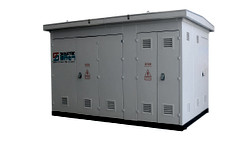The shift towards renewable and cleaner energy forms is emerging as a critical economic prospect for the 21st century. As countries globally establish ambitious goals to curtail fossil fuel reliance and mitigate emissions, new industries are cropping up, centred on renewable infrastructure, energy efficiency, advanced technology development, and green services.
Though this shift presents considerable challenges in technical and logistical terms, it is equally poised to catalyse employment growth and generate new job opportunities within various sectors for the foreseeable future.
Calculating the exact effect on job creation is complex, with outcomes hinging on a range of political and economic elements specific to each region. Nonetheless, research and employment forecasts indicate that job growth in the renewable sector outpaces the overall economy. The International Renewable Energy Agency (IRENA) foresees that renewable energy could generate upwards of 42 million jobs globally by 2050, should countries aggressively pursue climate objectives. This is a substantial increase over the employment prospects that may diminish as fossil fuel industries contract.

(symbol image, credit CLOU/Clipdrop)
Analysing these forecasts by industry sheds light on potential hotspots for job creation. Industries such as solar photovoltaic (PV) and onshore wind are expected to be substantial employers, with projections suggesting that each could support over 6 million jobs by mid-century if the transition accelerates.
This is complemented by growth in bioenergy, offshore wind, and renewable heating and cooling sectors. Adjacent industries, including manufacturing of solar panels, wind turbine blades, and batteries for electric vehicles, are also anticipated to expand significantly. Furthermore, employment will surge in overarching sectors like construction, installation, project planning, upkeep, and grid infrastructure development.
The job market will demand a diverse range of skills and educational qualifications. While many roles will necessitate advanced degrees, a considerable number of opportunities may be accessible to individuals with vocational training, technical certifications, or associate's degrees.
Professions such as electricians, welders, and construction technicians are expected to be in strong demand. Employment in managerial, administrative, and professional service roles is also projected to rise. Additionally, the wider economic impact of renewable energy will generate jobs across all levels of education, through indirect effects on supply chains and local economies.
Renewable energy sectors also offer the prospect of lucrative careers. Data from the U.S. Bureau of Labor Statistics indicate that roles in solar installation, wind turbine maintenance, and energy efficiency upgrades offer wages above the national median, with salaries likely to rise as clean energy skills become more sought after. Investments in clean energy also benefit local economies through enhanced economic activity and tax revenues.
The energy transition is an opportunity to reskill workers from shrinking fossil fuel sectors, enabling them to move into expanding areas of the green economy. With strategic policies and workforce development initiatives, individuals from declining industries can find new opportunities in renewable energy and associated services. Governments are focusing on facilitating a fair transition for all, investing in retraining, technology incubators, and support for startups in former fossil fuel strongholds.
The pace and extent of job creation will be influenced by political determination and economic incentives. Yet, it is clear that the renewable sector, along with its supply chains, presents substantial employment potential both now and in the future.
As renewable technologies advance and costs diminish, these industries are becoming more financially sound and globally competitive. With ongoing research, market support, and training programs, nations stand to benefit from the economic and employment advantages of a cleaner energy landscape. Collaborative efforts from diverse sectors will be key to optimizing job creation and ensuring widespread benefits from the energy transition.
Takeaway
The advance towards renewable energy is a profound chance for global economies to foster sustainable job growth across all educational strata. With thoughtful policymaking, investment in talent, business initiatives, and regional development, communities can be empowered to thrive in the burgeoning green economy. Through united efforts, the energy transition holds the potential to invigorate economies, spark innovation, and employ millions in the creation and maintenance of clean energy systems for the future.
Thank you for taking the time to read this article. Your thoughts and insights are valuable, so feel free to share them by posting a comment below. We appreciate your engagement in the discussion on energy transition and job creation.
Until then, keep shining bright like a solar panel on a sunny day!






All comments are moderated before being published. Inappropriate or off-topic comments may not be approved.